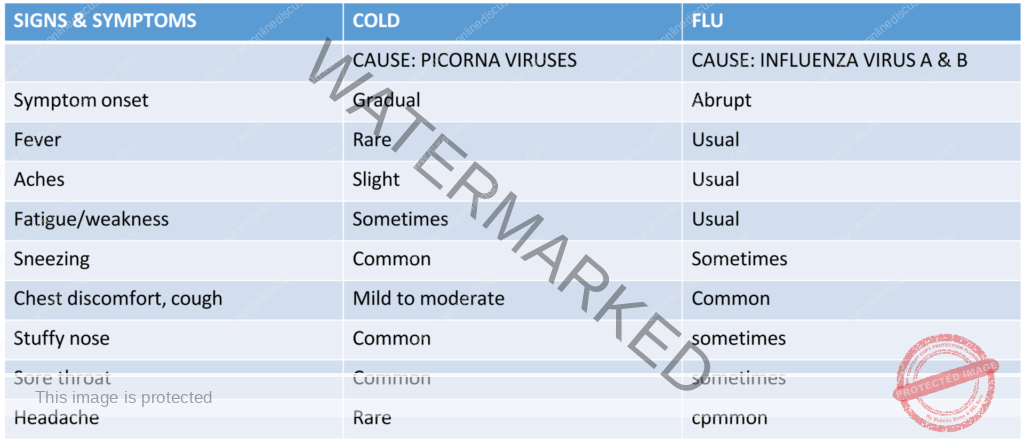Respiratory System Conditions
Subtopic:
Acute Coryza ( common cold)

ACUTE CORYZA (COMMON COLD)
- This is a highly infectious disease caused by a virus (picorna virus group) and spreads rapidly from infected person to healthy person by close personal contact or droplets.
- One attack does not produce immunity, hence on average, individuals suffer two or more attacks per year but attacks lessen with age.
- Examples of Picorna viruses; enteroviruses, hepatitis A viruses, coxsackieviruses, rhinoviruses, parainfluenza viruses, seasonal coronaviruses etc.
- Clinical features;
- Incubation period is 12hours to few
- Initial symptoms are; mild fever, malaise, rhinitis producing running nose with watery discharge and Associated severe body aches and tiredness. Running eyes is common due to conjunctivitis.
- Infection may travel to sinuses and result into sinusitis, to the pharynx and produce pharyngitis and to the trachea producing tracheitis (dry cough, brassy cough).
Differences between common cold and flu

Treatment of coryza
- Disease is self limiting, requires rest at home for 2 to 3
- Treatment is symptomatic; g. managing fever, cough, headache etc.
- Most cases recover completely within a few
Get in Touch
(+256) 790 036 252
(+256) 748 324 644
Info@nursesonlinediscussion.com
Kampala ,Uganda
© 2025 Nurses online discussion. All Rights Reserved Design & Developed by Opensigma.co
×

